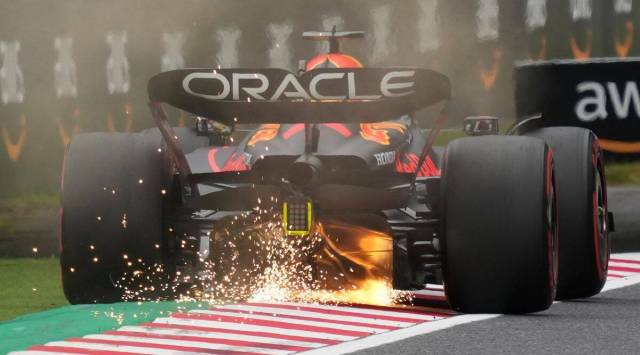
“Everything is politics” – Thomas Mann, German novelist and Nobel laureate
On December 20, the International Automobile Federation (FIA), organisers of Formula One, introduced a new rule banning players and teams from making any “political, religious or personal statements.” According to a new clause in its International Code of Conduct, such statements would be “in violation of the general principle of neutrality promoted by the FIA under its statutes.”
A pertinent question is: What is “neutrality” when it comes to sporting organisations? Is it even possible to be neutral in the world we live in?
The logic of capitalism has spared few aspects of modern life. Sport is no exception. Every sporting team or organisation ultimately functions as a profit-making enterprise. And Formula One might be the pinnacle of “capitalist sport”.
First, it is extremely expensive with most drivers either being rich themselves or having significant financial backing. For casual watchers, Formula One is not a sport at all; just a spectacle with a few rich men driving around in fancy fast cars while other rich men look on, sipping cocktails and eating caviar.
While this is an unfair characterisation – Formula One racing is mentally and physically gruelling – it is still somewhat unique as a sport. It has insurmountable barriers to entry for most people and one of the most exclusive fan bases as a result.
Isn’t there something “political” about this elitism and exclusivity? For FIA, apparently not.
Second, right from its inception, Formula One has been a marketing tool for various companies, from car manufacturers to cigarettes. Cars have been decked up with sponsors from top to bottom with drivers looking like walking advertisement boards.
Are brand endorsements political? Apparently not.
“Sportswashing” is a new term for an age-old practice. Historically, sport has been a vehicle to further the interests of the powerful and often morally compromised. For instance, the 1936 Olympics were hosted at the heart of the Nazi Reich, in Berlin. Through the Games, the Nazis promoted an image of a new, strong Germany while hiding the regime’s targeting of Jews, the Romani people and others.
Formula One is no different. With each race comes exposure for the hosting venue. Each country projects a certain vision of itself that millions watching Formula One will take home. Whether it be the nauseating opulence of Monaco or the faux modernity of new Saudi Arabia, Formula One shapes its viewers’ imagination of the world. In doing so, it masks the dark underbelly of each of these places.
But sportswashing is as relevant to brands and companies as it is to countries. Have a product that is addictive and can potentially ruin a person? Stick it on the back of Lewis Hamilton’s car. Have a business that continues to thwart humanity’s efforts towards combating global warming? Find some real estate on Max Verstappen’s wing.
But “politically neutral” Formula One does not have time to think about all this.
When the incessant drone of F1 cars drowns the cries of disenfranchised Saudi women, it chooses to “stay neutral”. Or when the drama on racetracks takes our attention away from the climate crimes of big oil companies, it does not “get into politics.”
The fact of the matter is that sport is intrinsically political and even the act of “not being political” has a certain politics to it.
FIA’s new rules come on the back of former F1 champions such as Lewis Hamilton and Sebastian Vettel making open statements on racism and human rights. Hamilton wore a black t-shirt at the 2020 Tuscan Grand Prix with the words “Arrest the cops who killed Breonna Taylor”. Vettel wore a shirt which said “Stop Mining Tar Sands” and “Canada’s Climate Crime” at the Canadian Grand Prix.
These are undoubtedly political statements. But so is the FIA’s move to police such statements. Formula One’s problem is not with politics itself, but a particular kind of politics, which (potentially) harms its bottom line.
Being “apolitical” is code for espousing the politics of preserving the status quo. It is a privilege in an unjust world to be “neutral”, as well as a means to protect the injustice. And it is large companies and big sporting organisations that benefit from the status quo. Thus, when FIA bans its drivers and teams from expressing their political opinions, it “plays politics” – the politics of preserving Formula One’s own interests and privilege in the status quo.
It is the politics of “keeping the money flowing,” no questions asked. And “neutrality” is the way to wash its hands of any responsibility for where this money comes from.
To be clear, no one expects Formula One to become an activist organisation. But to deny its workers even the basic right to express their opinions is a move that goes beyond being “neutral.” It openly sides with injustice for monetary benefit.
arjun.sengupta@expressindia.com